Elections for the new four-person cohort on the Policy Council, President-Elect, Vice President and Secretary begins on April 11. The election will run until midnight Eastern Time on May 11. Ballots will be emailed to all APPAM members in good standing.
Among the four person cohort for the Policy Council, one is a researcher in a non-academic setting; one is an institutional representative selected by the Committee of Institutional Representatives; and two are researchers who work in academic settings. All will serve four-year terms.
Finally, one student is appointed annually to serve a two-year term on the Policy Council. There are two student seats on the Board and one new student is selected for service each year. Daniel Santos was selected in December 2021 to serve on the Policy Council.
Voting for the next Policy Council cohort, which will serve from 2022 through 2025, and for Vice President and Secretary, who will serve from 2022 through 2023, begins April 11. The election will conclude at midnight, Eastern Time, on May 11.
I have been fortunate to serve in a variety of leadership roles at APPAM prior to this opportunity, including as Vice President, Policy Council Member, Member of the Diversity Committee (under the leadership of our fantastic President John Martinez), and Chair of the Social Equity track of the Fall Conference for several years in the 2000s. I have also served our association’s outstanding journal, JPAM, as Managing Editor, Co-Editor, and Editorial Board Member. Through these experiences I have gained perspective and experience working with our Association’s outstanding staff and understanding the challenges and opportunities we face as an organization.
My main priorities for APPAM will be to plan a safe and high quality 2022 Fall Research Conference in Washington, DC (and virtually, if conditions require); to confirm and expand our Association’s commitment to inclusive excellence at all levels of our organization, including in key leadership positions; and to build on strategic partnerships with other professional societies whose missions align with ours. My guiding principle throughout will be the advancement of APPAM’s interests while at the same time working to increase the group of individuals who see APPAM as one of their key intellectual homes, too. I look forward to seeing you again soon in Washington, D.C. this November!
Vice President Nominees
One will be elected; serves a 2-year term; there are two Vice Presidents on APPAM's Executive Committee and Policy Council, serving staggered terms.
Carolyn Hill, MDRC
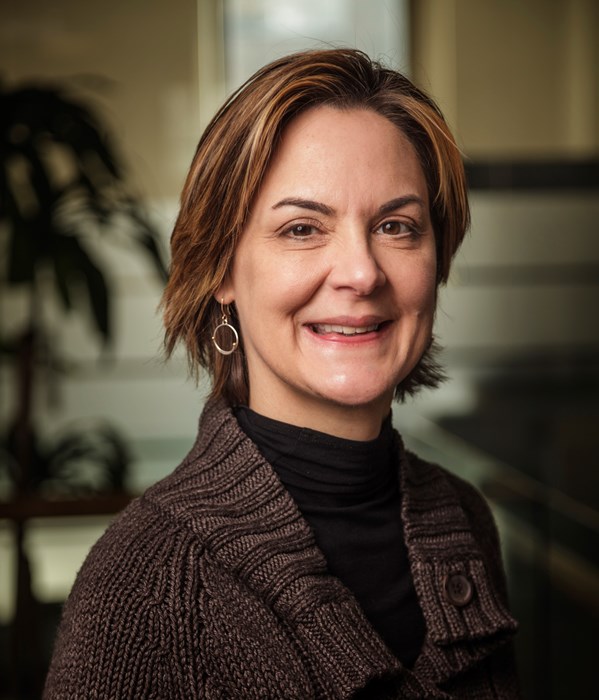 I’m honored to be a nominee for APPAM Vice President and to have a chance to serve the members in this role. APPAM has been my association home throughout my career, as it encompasses a wide range of topics that my own research and teaching address: program evaluation, policy analysis, public and nonprofit management, and implementation research across many policy domains.
I’m honored to be a nominee for APPAM Vice President and to have a chance to serve the members in this role. APPAM has been my association home throughout my career, as it encompasses a wide range of topics that my own research and teaching address: program evaluation, policy analysis, public and nonprofit management, and implementation research across many policy domains.
I have master’s and PhD degrees in public policy, and I have experience in both academic and nonacademic settings, as a faculty member at Georgetown’s McCourt School for 15 years, including three years as associate dean for academic affairs, and currently as a senior fellow at MDRC. I welcome the opportunity to serve as a member of the leadership team, supporting APPAM’s mission and working to ensure that the association supports equitable and inclusive policies and practices in our research and teaching.
Rucker Johnson, University of California, Berkeley
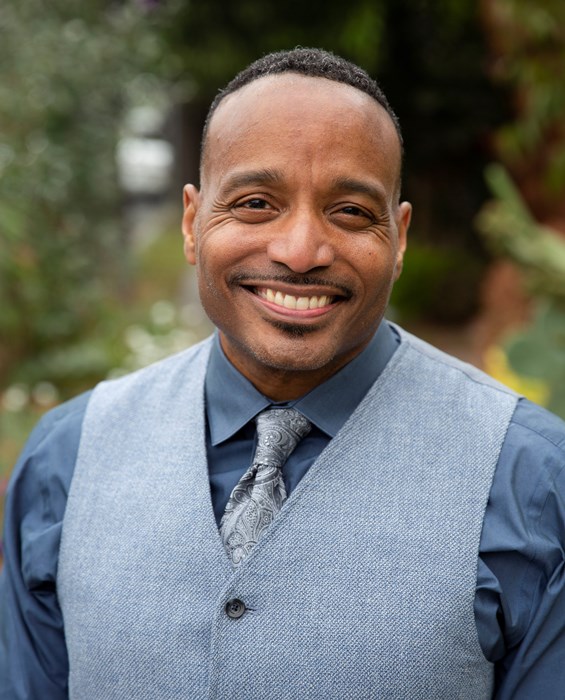 I am extremely honored to be nominated to serve as the Vice President of the APPAM Policy Council. I have regularly attended APPAM for the past two decades dating back to my years as a doctoral student at the University of Michigan. I am an economist & currently serve as the Chancellor’s Professor of Public Policy at the University of California-Berkeley and research associate of the National Bureau of Economic Research. I specialize in the economics of education and my work considers how poverty and inequality influence children’s life chances. APPAM has played an instrumental role helping me cultivate and extend so many of my professional networks, and been a vibrant source of intellectual growth. My goal is therefore to pay it forward in service. I am especially passionate about strengthening, diversifying, & expanding the pipeline of minority scholars in the profession. I firmly believe our strength is in hearing and understanding our diverse perspectives, and thinking and acting collectively in addressing the myriad of challenges faced by all of our citizens. This also ensures our efforts to speak truth to power with data and analytical tools will not be silenced or occur in an echo chamber without the benefits of dissemination toward meaningful policy reforms and impactful actions. This work is enhanced when equity involves placing a brighter spotlight on marginalized communities, and greater recognition of those researchers who come from underrepresented groups is critical.
I am extremely honored to be nominated to serve as the Vice President of the APPAM Policy Council. I have regularly attended APPAM for the past two decades dating back to my years as a doctoral student at the University of Michigan. I am an economist & currently serve as the Chancellor’s Professor of Public Policy at the University of California-Berkeley and research associate of the National Bureau of Economic Research. I specialize in the economics of education and my work considers how poverty and inequality influence children’s life chances. APPAM has played an instrumental role helping me cultivate and extend so many of my professional networks, and been a vibrant source of intellectual growth. My goal is therefore to pay it forward in service. I am especially passionate about strengthening, diversifying, & expanding the pipeline of minority scholars in the profession. I firmly believe our strength is in hearing and understanding our diverse perspectives, and thinking and acting collectively in addressing the myriad of challenges faced by all of our citizens. This also ensures our efforts to speak truth to power with data and analytical tools will not be silenced or occur in an echo chamber without the benefits of dissemination toward meaningful policy reforms and impactful actions. This work is enhanced when equity involves placing a brighter spotlight on marginalized communities, and greater recognition of those researchers who come from underrepresented groups is critical.
This is a period that has laid bare multiple crises & fractures in our public systems at once: polarized democracy, public health crisis, public education systems in peril, racial reckoning, economic recession & increasing disparities, climate change, war and the challenges can seem endless. APPAM is the preeminent organization devoted to solutions and scholarship at the intersections of academia & scholarly researchers, frontline and innovative practitioners and the policy-making community. Now is the time, more than ever before, for us to seize the moment, and embrace these acute, and often competing interests, as opportunities for social change and deeper learning. I am more than confident that APPAM has the capacity and the will to drive and leverage this interdisciplinary body toward the greater public good. If not us, then Who; If not now, then When.
Secretary Nominee
One will be elected; serves a 2-year term.
Shanti Gamper-Rabindran, University of Pittsburgh
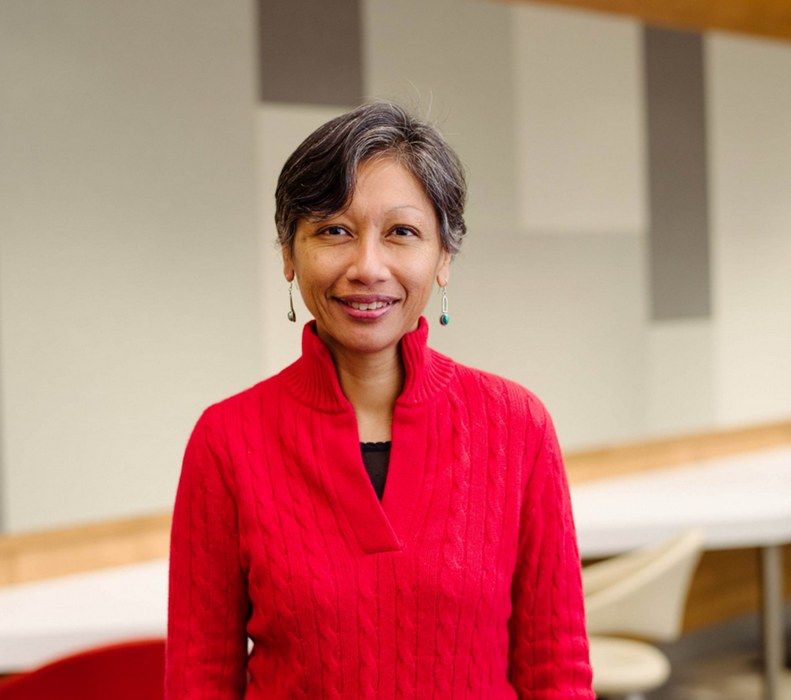 I am honored to be nominated to serve as APPAM Secretary and be part of the Executive Committee. I am an associate professor at the Graduate School of Public and International Affairs at the University of Pittsburgh.
I am honored to be nominated to serve as APPAM Secretary and be part of the Executive Committee. I am an associate professor at the Graduate School of Public and International Affairs at the University of Pittsburgh.
APPAM mentors have been incredibly supportive throughout my journey from a graduate student to a policy professional. Serving on the Policy Council in the last five years gave me a chance to repay some of my many debts to APPAM. I worked with the APPAM governing board and members in their continuing efforts make the public policy and management world more accessible and inclusive and to amplify the voices of diverse Americans and non-Americans on policy needs and possible solutions. I hope to continue to support training sessions for policy professionals to bridge the academic-policy divide, workshops to nurture students and professionals from diverse academic and nonacademic institutions, fall conferences that nurture constructive dialog, and to help implement other initiatives to amplify voices long marginalized.
My work focuses on the nexus of economic development, environment and energy issues. It has been gratifying to see interdisciplinary policy work that prioritize equity concerns, undervalued in many settings but appreciated at APPAM, gain broader recognition in the academic world and increasingly implemented by policy professionals. My recent book America’s Energy Gamble: People, Economy and Planet came to fruition in no small part because of its early refuge at APPAM conferences. The positive development in this field, as I am sure in other APPAM fields, testify to APPAM's role in providing constructive space and supportive sustenance to policy professionals and students, especially when policymaking risks becoming untethered from facts and evidence. I am honored to contribute to our joint efforts.
Bradley Hardy, Georgetown University
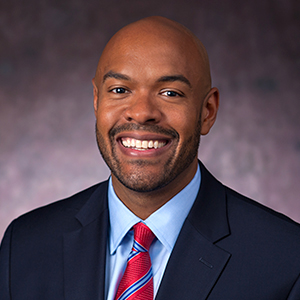 I would be honored to serve on the APPAM Policy Council as Secretary. I am an Associate Professor in the McCourt School of Public Policy at Georgetown University, and have participated in APPAM activities since the early 2000s as an MPP student. I currently serve on the Policy Council as an early career researcher in an academic setting.
I would be honored to serve on the APPAM Policy Council as Secretary. I am an Associate Professor in the McCourt School of Public Policy at Georgetown University, and have participated in APPAM activities since the early 2000s as an MPP student. I currently serve on the Policy Council as an early career researcher in an academic setting.
Outside of the Policy Council, I have served APPAM as a conference program committee chair and poster session judge, and also as a long-time presenter, discussant, and attendee. In addition to this, I am a co-editor for APPAMs flagship journal, the Journal of Policy Analysis and Management. On the Policy Council, I chair the Membership Subcommittee, and have worked extensively to help inform the Association’s policies and procedures related to member conduct within and outside of APPAM events. If elected to serve as Secretary, I hope to continue APPAM’s on-going work, including efforts to strengthen relationships between the Association and (1) minority-serving institutions, their students, and faculty, and (2) non-academic institutions—including government institutions, research institutions, and non-profits. I believe this continued effort at inclusion will improve research, inform policy implementation, and add to the dynamism of our Association.
In my academic work, I am a labor economist with interdisciplinary research interests focused on economic volatility, intergenerational mobility, poverty policy, racial economic inequality, and socio-economic outcomes. I hope to continue to give voice to how these issues are impacting the nation, and how APPAM can contribute to the improvement of socioeconomic conditions. In addition to my academic appointments, I serve as a nonresident senior fellow in Economic Studies at the Brookings Institution, a research fellow with the Institute for Economic Equity at the Federal Reserve Bank of St. Louis, and a research affiliate of both the University of Wisconsin Institute for Research on Poverty and the University of Kentucky Center for Poverty Research. I also work closely on research projects with the District of Columbia Office of Revenue Analysis. I am deeply committed to the work of APPAM and have appreciated my time as a Policy Council member. I would be honored to serve as the Secretary of the Policy Council.
Back to top of page.
Nominees in an Academic Setting
Two will be elected for a 4-year term.
Shaun Dougherty, Vanderbilt University
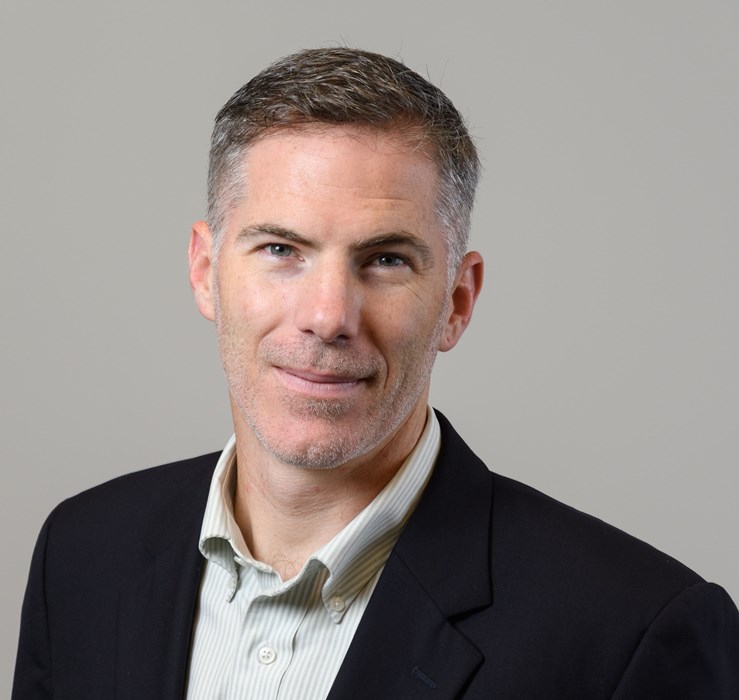 It is an honor to be considered for the position of council member. I have been a proud and active member of APPAM for over a decade. I am an Associate Professor of Public Policy and Education at Vanderbilt University’s Peabody College and a faculty member in the MPP and PhD programs. My research focuses on education policy analysis, causal program evaluation and cost analysis, and the economics of education. In particular I study career and technical education, educational accountability policies, and the application of regression discontinuity research designs. In all of this work I emphasize how education can address human capital development as well as issues of equity related to race, class, gender, and disability.
It is an honor to be considered for the position of council member. I have been a proud and active member of APPAM for over a decade. I am an Associate Professor of Public Policy and Education at Vanderbilt University’s Peabody College and a faculty member in the MPP and PhD programs. My research focuses on education policy analysis, causal program evaluation and cost analysis, and the economics of education. In particular I study career and technical education, educational accountability policies, and the application of regression discontinuity research designs. In all of this work I emphasize how education can address human capital development as well as issues of equity related to race, class, gender, and disability.
For the last three years, I have served as an institutional representative to APPAM, a reviewer for conference program committees, a mentor to junior scholars, and a webinar participant. I have also served JPAM as an ad hoc reviewer for almost a decade. I value the integration between academic, policy, and practitioner perspectives and manifest this through my partnership with state and local agencies to ask an answer questions of direct interest to policy and practice. I write for a variety of outlets including Brookings and the Conversation to expand the breadth of my research influence.
As a council member, I will aim to facilitate and support the integration of both academic and practice-based perspectives, to ensure that APPAM continues to realize its mission as an applied, policy relevant organization.
Andrea Headley, Georgetown University
 I am an Assistant Professor at the McCourt School of Public Policy at Georgetown University and I am honored to be nominated for the APPAM Policy Council as an early career academic researcher. I’ve participated in APPAM in a variety of capacities over the years, reviewing conference proposals as well as presenting, chairing and discussing papers at the conference. I’ve also been fortunate to receive APPAM’s Equity and Inclusion Fellowship and 40 for 40 Fellowship for Outstanding Early Career Research Professionals. Being a recipient of such honors, now I would like to pay it forward and serve the broader APPAM community.
I am an Assistant Professor at the McCourt School of Public Policy at Georgetown University and I am honored to be nominated for the APPAM Policy Council as an early career academic researcher. I’ve participated in APPAM in a variety of capacities over the years, reviewing conference proposals as well as presenting, chairing and discussing papers at the conference. I’ve also been fortunate to receive APPAM’s Equity and Inclusion Fellowship and 40 for 40 Fellowship for Outstanding Early Career Research Professionals. Being a recipient of such honors, now I would like to pay it forward and serve the broader APPAM community.
APPAM seeks to improve policy and management, interface with practitioners and scholars, engage multidisciplinary audiences, and foster diversity and inclusion – all of which embody who I am as a scholar. I desire to use research and evidence to inform public policy and improve the delivery of public services. Thus, in my policy area (criminal justice), I’ve engaged with government organizations and public facing thinktanks to conduct applied research. For instance, I currently serve as a Visiting Scholar of Race, Policing and Crime at the National Policing Institute. I’ve provided expert testimony to state legislatures regarding my area of expertise and regularly engage with a variety of media outlets (e.g., ABC, CBS, and PBS news) in order to disseminate research to the broader public. Moreover, I have a multidisciplinary educational background that spans across public affairs, criminal justice and human and social development. As such, I understand the importance of and value bringing different fields together to answer pressing policy and management questions. Further, I am committed to advancing social equity. At the heart of my research lies the question how can we create a more effective and equitable government? I focus on the criminal justice system to unpack disparities and evaluate policies and program aimed at reducing inequities. Furthermore, I am an Advisory Board Member for the Consortium of Race and Gender Scholars in Public Management, where we seek to create a more inclusive and equitable field.
I’ve also held a variety of leadership positions in the past, which have prepared me for this role. For instance, I’ve served as a Board Member of the National Council for the American Society of Public Administration, the Vice President for the Ron Brown Scholars Alumni Association, the Founding Treasurer of a local student chapter of the International City/County Management Association amongst others. As a result of my prior professional experience and educational background, I am confident that I can serve the diverse APPAM community, while adding to our existing strengths and helping to reach new depths.
Johanna LaCoe, University of California, Berkeley, California Policy Lab
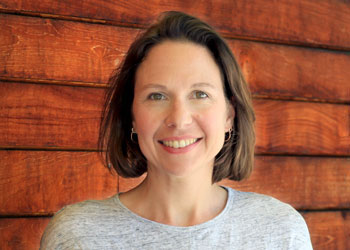 APPAM has played a formative role in my development and identity as a policy researcher, and I’m honored to be considered for a position on the APPAM Policy Council. I am the Research Director of the California Policy Lab at UC Berkeley, where I conduct quantitative research on criminal and juvenile justice, housing, education, and employment in close partnership with state and local agencies. I’m proud of the work we are doing to answer questions that matter both to academia and to practitioners and policymakers.
APPAM has played a formative role in my development and identity as a policy researcher, and I’m honored to be considered for a position on the APPAM Policy Council. I am the Research Director of the California Policy Lab at UC Berkeley, where I conduct quantitative research on criminal and juvenile justice, housing, education, and employment in close partnership with state and local agencies. I’m proud of the work we are doing to answer questions that matter both to academia and to practitioners and policymakers.
My interdisciplinary training and experience as a policy researcher has allowed me to explore the interactions between criminal justice, education, and housing policy, and to build a strong foundation in econometrics – yet at times I have struggled to fit into any single academic discipline. Each year, the APPAM research conference feels like home; people who understand the complex reality of policy design and implementation and put their research skills to work addressing real-life policy problems. I’ve witnessed intense debates in APPAM sessions, learned about novel programs, and received incredibly helpful feedback on my own work.
Still, as someone who has studied criminal and juvenile justice for almost 20 years, I’m painfully aware of our field’s shortcomings. I’ve written so many summaries of racial disparities in arrest, charging, conviction, and sentencing as motivation for why reform of justice systems is necessary. Yet, just acknowledging those facts is not nearly enough to make our legal systems fair for all, and in particular, for Black and Hispanic Americans. By supporting the next generation of scholars, providing space to debate thorny policy issues, and highlighting evidence-based governance, APPAM can be a leading force for change. I would love to give back to APPAM, and make sure it remains a welcoming forum for tough conversations.
David Slusky, University of Kansas
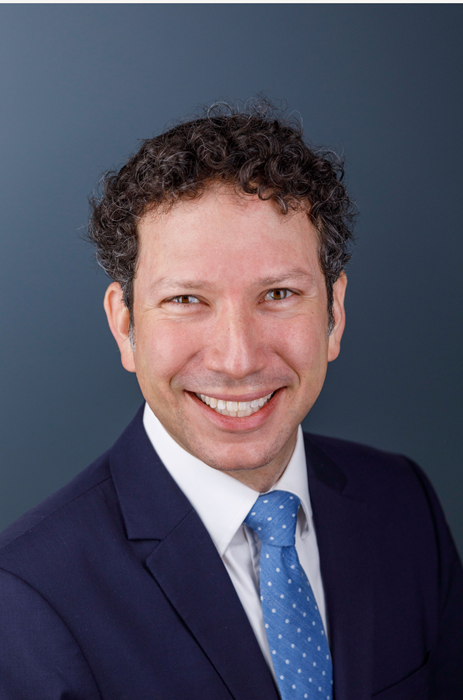 It is an honor to be nominated to run for the APPAM’s Policy Council as a researcher working in an academic setting. I have been involved with APPAM since I was a graduate student, frequently organizing sessions and presenting and discussion papers at the annual research conference. I also am currently serving as a Co-Editor (in a managing editor capacity) at the Journal of Policy Analysis and Management (JPAM) and have served on the Dissertation Award Selection Committee.
It is an honor to be nominated to run for the APPAM’s Policy Council as a researcher working in an academic setting. I have been involved with APPAM since I was a graduate student, frequently organizing sessions and presenting and discussion papers at the annual research conference. I also am currently serving as a Co-Editor (in a managing editor capacity) at the Journal of Policy Analysis and Management (JPAM) and have served on the Dissertation Award Selection Committee.
I am also the new Executive Director of the American Society of Health Economists (ASHEcon). In this capacity I work closely with APPAM’s staff, given the strategic partnership between the two organizations where ASHEcon contracts with APPAM to manage its operations. My goal in serving on APPAM’s Policy Council while in this role is to strength cooperation and coordination between the two organizations. I would also recuse myself from any Policy Council vote when there would be a conflict of interest arising from my role at ASHEcon.
My primary appointment is as the De-Min and Chin-Sha Wu Associate Professor of Economics at the University of Kansas (KU). I am also an Associate Professor of Population Health (by courtesy) at KU’s Medical School, a Research Associate at the National Bureau of Economic Research with appointments in the health economics and health care programs, a Research Fellow at IZA - Institute of Labor Economics in Bonn, Germany, a member of the Editorial Board for the Eastern Economic Journal, and have Special Sworn Status with the United States Census. Currently, I am on sabbatical in Stockholm, where I am a visiting researcher at the Department of Economics at Uppsala University, the Department of Economics at the Stockholm School of Economics, and SOFI at Stockholm University.
My research interests include reproductive health care, fertility, birth and child outcomes, health and disability insurance, and substitution across different types of health care. My work has been published in JPAM as well as in the American Economic Journal: Applied Economics, the Journal of Health Economics, Demography, the American Journal of Preventive Medicine, the American Journal of Health Economics, Economics and Human Biology, and the Review of Economics of the Household. My work has also been funded by the National Science Foundation, the Russell Sage Foundation, the Health Forward Foundation, and the REACH Healthcare Foundation.
I am also the founder of the Kansas Health Economics Conference which annually brings together local researchers, including those from KU, Kansas State, the Federal Reserve Bank of Kansas City, the University of Missouri Kansas City, Children’s Mercy Hospital, the U.S. Department of Agriculture’s Economic Research Service, the University of Nebraska and the University of Missouri. I am also a co-founder the Electronic Health Economics Colloquium, a monthly Zoom health economics seminar series now produced in partnership with ASHEcon.
Beyond KU, I was also a Health Policy Advisor for Pete Buttigieg’s presidential campaign, have testified before the Kansas Senate and presented to the Governor’s Council on Tax Reform, and am a frequent guest on podcasts, radio, and television.
Hongtao Yi, Ohio State University
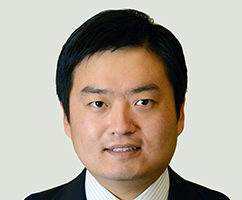 I am associate professor and Director of Graduate Professional Studies at John Glenn College of Public Affairs, The Ohio State University. I am a scholar with expertise at the intersection of policy process, public administration, and energy and environmental policy, with both domestic and international orientations. Since 2010, I have actively participated in APPAM in various roles, as a presenter, panel chair, discussant, program committee member and membership committee member.
I am associate professor and Director of Graduate Professional Studies at John Glenn College of Public Affairs, The Ohio State University. I am a scholar with expertise at the intersection of policy process, public administration, and energy and environmental policy, with both domestic and international orientations. Since 2010, I have actively participated in APPAM in various roles, as a presenter, panel chair, discussant, program committee member and membership committee member.
My platform to run for the policy council centers around two themes: representation and integration. As an AAPI scholar, my election to the council would provide a voice to multiple groups of scholars who are numerical minorities in APPAM and its leadership: public administration scholars, Chinese policy scholars and AAPI scholars more broadly. Asian Americans have faced extensive discrimination and outright hostility during the pandemic. My leadership in all of these scholarly communities could provide valuable input for making APPAM the inclusive organization it aims to be.
I spearheaded the creation of the Chinese Policy Scholars Group (CPSG), in response to the APPAM Communities Program call in 2019. Under my leadership and in collaboration with other policy scholars, CPSG became a vibrant, collegial, and fast-growing community within APPAM. I and CPSG have been actively engaged in promoting APPAM in China and Asian countries through community gatherings and online webinars, drawing an increasing number of young scholars to APPAM and its conferences. My leadership roles in the American Political Science Association, the American Society of Public Administration, and the Asian Association of Public Administration also put me in the position to help integrate communities within APPAM and connecting APPAM to other associations—both domestic and international.
Back to top of page.
Nominees in a Non-Academic Setting
One will be elected for a 4-year term.
Aixa Cintron-Velez, Russell Sage Foundation
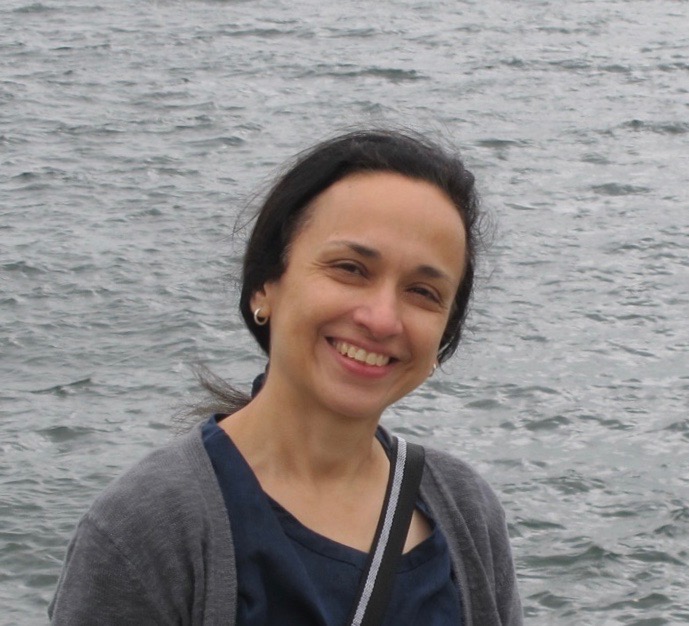 I am honored to be nominated for the APPAM Policy Council. APPAM is the preeminent professional organization bringing together policy makers, practitioners, and scholars for the enhancement of public policy. Throughout my career—from my student years to the present—I have benefitted greatly from membership in this community. And I now appreciate the opportunity to give back. To serve on the Council at a time when the nation simultaneously grapples with climate change, threats to democracy, the long-term effects of a pandemic, stark evidence of persistent racial discrimination, and a pressing need to re-imagine the future of work and of workers is a responsibility that I take seriously.
I am honored to be nominated for the APPAM Policy Council. APPAM is the preeminent professional organization bringing together policy makers, practitioners, and scholars for the enhancement of public policy. Throughout my career—from my student years to the present—I have benefitted greatly from membership in this community. And I now appreciate the opportunity to give back. To serve on the Council at a time when the nation simultaneously grapples with climate change, threats to democracy, the long-term effects of a pandemic, stark evidence of persistent racial discrimination, and a pressing need to re-imagine the future of work and of workers is a responsibility that I take seriously.
APPAM has a distinct role to play, not only to educate and inform, but also to serve the public good— from providing timely relevant evidence to better understand these inter-connected issues to ensuring that lawmakers and the larger public have access to the science and facts that they need in order to make informed decisions. To effectively accomplish its mission, APPAM also has the responsibility to build a more diverse and inclusive professional organization, where both rigorous social science and meaningful representation of different perspectives not only co-exist, but also thrive. If elected, I aim to advance this agenda.
My research and work experience make me particularly well-suited to serve APPAM. As a Program Director at the Russell Sage Foundation (RSF), I oversee the Foundation’s research programs on the Future of Work and on Race, Ethnicity, and Immigration. This has given me an invaluable point of entry into an important set of issues that are core to APPAM’s mission—from the benefits of a comparative, cross-national, lens for understanding low-wage work in the U.S. and the role of policies and institutions in harnessing automation to create good jobs, to realizing our empirical blind spots in studying contemporary migration, racial bias, and discrimination. Leading such diverse programs has also afforded me many occasions to forge innovative and inter-disciplinary partnerships with academics, researchers, and policy makers—a skillset that I would bring to the broader APPAM community.
Work at RSF has also given me the opportunity to partake in efforts to increase diversity, equity, and inclusion in a variety of settings. For example, I am an active member of the Funders’ Learning Community to Reduce Ethnic and Racial Disparities in Funding and Career Advancement, where a group of over 15 public and private funders develop opportunities for researchers of color to develop the tools and connections necessary to successfully compete for funding.
I have also served on the Advisory Council to CUNY’s Guttman Community College, the Board of the New York Federal Statistical Research Data Center (NYRDC), and the Sloan Research Network on Outsourcing. Having previously worked as a civil servant, an academic, and as a non-profit manager, I have experienced the benefits of collaborating across disciplines, methods, substantive areas of interest, and places of practice, which makes APPAM such a natural intellectual home for me. If elected, I would work to ensure that APPAM is such a home for all of its members, one that draws on its diversity to advance rigorous research, education, and training in order to address the morally urgent social issues of our time.
Nick Hart, Data Foundation
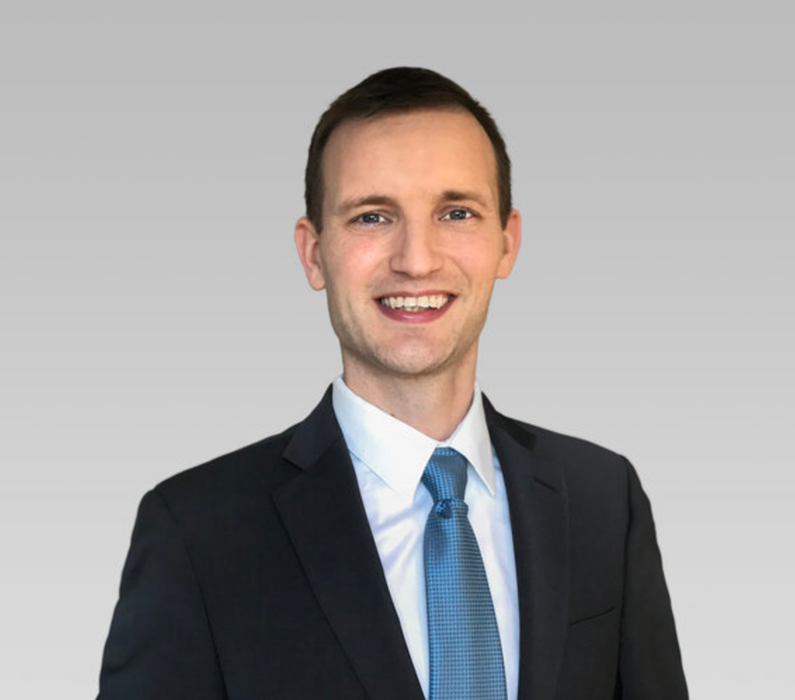 It’s an honor to be considered for the APPAM Policy Council. I currently lead the Data Foundation, a non-profit organization that champions the use of data and evidence-informed policy to improve society. We operate at the intersection of government, academia, industry, and nonprofits – as an intermediary between those producing research evidence and those seeking to use it in decision-making and policymaking contexts.
It’s an honor to be considered for the APPAM Policy Council. I currently lead the Data Foundation, a non-profit organization that champions the use of data and evidence-informed policy to improve society. We operate at the intersection of government, academia, industry, and nonprofits – as an intermediary between those producing research evidence and those seeking to use it in decision-making and policymaking contexts.
If selected for the APPAM Policy Council, I hope to bring my experience and enthusiasm for building and using evidence in our society to consider APPAM’s unique position and expertise, especially at this critical time for federal agencies in implementing the Foundations for Evidence-Based Policymaking Act (Evidence Act). The APPAM community is a great resource for supporting agencies in fulfilling the expectations and goals of the Evidence Act, including accomplishing multi-year learning agendas, completing evaluation plans, prioritizing and publishing data on open data plans, sharing and improving access to restricted data, and more. Similarly, identifying strategies to better communicate agency research and evidence needs to the APPAM community and then bolster research partnerships should be prioritized to promote greater use of evidence among policymakers.
My last role in government was as the Policy and Research Director of the U.S. Commission on Evidence-Based Policymaking, which produced recommendations that culminated in the Evidence Act and led to the National Secure Data Service Act currently pending in Congress. In the years since, I’ve worked closely with Congress, the White House, and countless federal agencies to bolster capacity for sharing, linking, and using data to produce robust analysis and evaluations. APPAM is well-suited to be contribute substantially to these efforts to strengthen the larger evidence-building community and I look forward to engaging in the years ahead.
Michael Strain, American Enterprise Institute
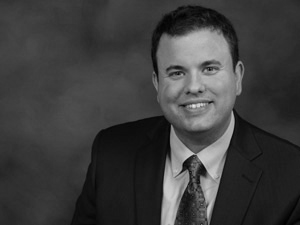 I am honored to be nominated for the APPAM policy council. Attending APPAM is one of the best and most productive ways to learn about pressing policy issues and cutting-edge academic research. And presenting at APPAM is always a professional highlight. The questions I get when I present at APPAM are extremely thoughtful, expert, and helpful.
I am honored to be nominated for the APPAM policy council. Attending APPAM is one of the best and most productive ways to learn about pressing policy issues and cutting-edge academic research. And presenting at APPAM is always a professional highlight. The questions I get when I present at APPAM are extremely thoughtful, expert, and helpful.
APPAM could be characterized by its diversity, with so many academic disciplines represented among its members and at its conference, and with its mix of scholars and practitioners. But I prefer to think of APPAM as a unified association with a clear and straightforward mission: to improve public policy and management through excellence in research and outreach. That mission requires the diversity that is also a hallmark of APPAM. If elected, I will work to strengthen APPAM’s diverse approach to advancing its worthy mission.
I am Director of Economic Policy Studies and Senior Fellow at the American Enterprise Institute, where I hold the Arthur F. Burns Chair. In addition to my academic and policy articles, I have edited or coedited three books on economics and economic policy. I am also the author of The American Dream Is Not Dead: (But Populism Could Kill It), a 2020 book which challenges the narrative of economic despair presented by populists in both political parties. I am a research fellow with the Institute for Labor Economics (IZA) in Bonn, a research affiliate with the Institute for Research on Poverty at the University of Wisconsin-Madison, and a member of the Aspen Economic Strategy Group. I am an elected member of the National Academy of Social Insurance. I was a member of the AEI-Brookings Working Group on Poverty and Opportunity, which published the report “Opportunity, Responsibility, and Security: A Consensus Plan for Reducing Poverty and Restoring the American Dream.” I recently completed service as a co-chair of the AEI-Brookings Working Group on Childhood in the United States, which published the report “Rebalancing: Children First.” I am currently serving on several committees and working groups at the intersection of academic research and policy, including for the American Academy of Arts and Sciences, the National Academy of Social Insurance, and the National Academies of Science, Engineering, and Medicine. I hold a Ph.D. in economics from Cornell University.
Thank you for considering me for a seat on the policy council. If elected, I will work hard to advance APPAM’s vital mission.
Back to top of page.
Institutional Member Representative
One will be elected for a 4-year term.
**Please note: only institutional members vote for the institutional member representative on the Policy Council.**
Maria Fitzpatrick, Cornell University
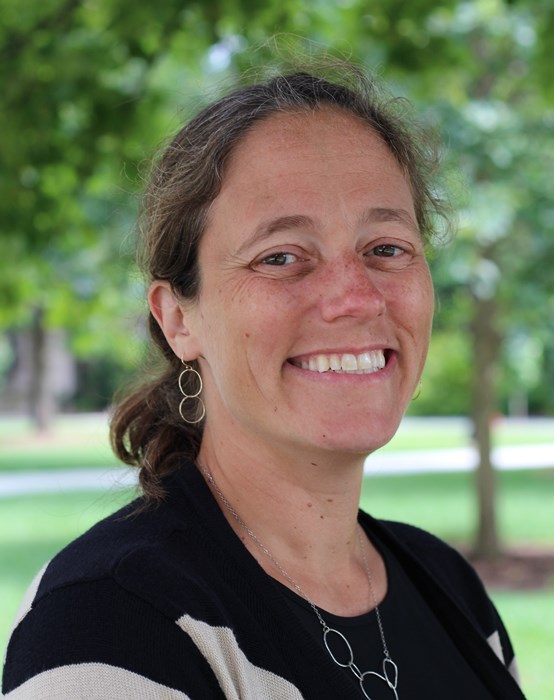 I am honored to be being considered for the Institutional Member Representative position on APPAM’s Policy Council. I am a Professor of Economics and Public Policy at Cornell University, and the Associate Dean for Academic Affairs in the new Cornell Jeb E. Brooks School of Public Policy. Through my research on policies that affect children and families, I have a deep understanding of how influential policy can be at improving people’s lives, and how oftentimes policies have unintended consequences. Through my research on education policy and my administrative roles overseeing multiple professional degree programs and undergraduate degree programs in public policy areas, I have a comprehensive understanding of how students benefit from high-quality education, and how we can improve our programs to better serve these students and our communities. I’ve worked with community partners of all kinds, from non-profits to local and state government agencies. This work informs my understanding of policy, including the importance and influence of connecting our scholarship and training to the communities that need it most.
I am honored to be being considered for the Institutional Member Representative position on APPAM’s Policy Council. I am a Professor of Economics and Public Policy at Cornell University, and the Associate Dean for Academic Affairs in the new Cornell Jeb E. Brooks School of Public Policy. Through my research on policies that affect children and families, I have a deep understanding of how influential policy can be at improving people’s lives, and how oftentimes policies have unintended consequences. Through my research on education policy and my administrative roles overseeing multiple professional degree programs and undergraduate degree programs in public policy areas, I have a comprehensive understanding of how students benefit from high-quality education, and how we can improve our programs to better serve these students and our communities. I’ve worked with community partners of all kinds, from non-profits to local and state government agencies. This work informs my understanding of policy, including the importance and influence of connecting our scholarship and training to the communities that need it most.
Today, more than ever, society needs practical, evidence-based, community-engaged policymaking. As a leader in the policy world across various dimensions, including education, research, service, and public engagement, APPAM has a prominent role to play in developing and promoting scholarship, practitioner partnerships, and well-trained citizens and leaders in the public and private sectors. As a member of the policy council, I would dedicate myself to work with the members of our community to build on APPAM’s impressive historical record. We can work together to improve our community. This work should include finding new ways to communicate with each other and with stakeholders outside APPAM, to diversify our community and its ideas, and to better train the next generation of policy leaders.
Since the beginning of my participation in APPAM, I have found it to be a welcoming intellectual home. I look forward to the opportunity to help it continue in that spirit and provide others the opportunities I’ve had – and more.
Douglas Harris, Tulane University
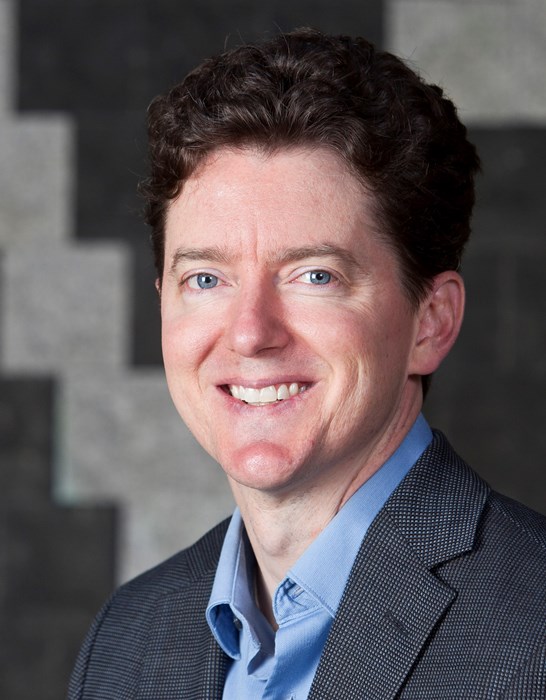 I am professor and chair of the Department of Economics and the Schlieder Foundation Chair in Public Education at Tulane University, as well as a non-resident Senior Fellow at the Brookings Institution. I also founded, and now direct, two research centers—the Education Research Alliance for New Orleans and the National Center for Research on Education Access and Choice (REACH). As these center names suggest, my work focuses on the economics of education (both K-12 and higher education), although most of my work is interdisciplinary (with political science, psychology, public administration, sociology) and my policy interests extend to issues of poverty and the environment. Before coming to Tulane, I was Associate Professor in the LaFollette School of Public Affairs (and School of Education) at UW-Madison. (I also received my MPA from LaFollette many years before that.) Finally, I have experience in government, including advisory roles with the Obama Administration, Biden Campaign, and governors in many states.
I am professor and chair of the Department of Economics and the Schlieder Foundation Chair in Public Education at Tulane University, as well as a non-resident Senior Fellow at the Brookings Institution. I also founded, and now direct, two research centers—the Education Research Alliance for New Orleans and the National Center for Research on Education Access and Choice (REACH). As these center names suggest, my work focuses on the economics of education (both K-12 and higher education), although most of my work is interdisciplinary (with political science, psychology, public administration, sociology) and my policy interests extend to issues of poverty and the environment. Before coming to Tulane, I was Associate Professor in the LaFollette School of Public Affairs (and School of Education) at UW-Madison. (I also received my MPA from LaFollette many years before that.) Finally, I have experience in government, including advisory roles with the Obama Administration, Biden Campaign, and governors in many states.
I have been coming to APPAM almost every year for the past two decades and have always appreciated the combination of collegiality, multi-disciplinary perspectives, and rigorous, policy-focused research. I have put my name forward to give back and pay these gifts forward. As a member of the Policy Council, I could also represent a wide range of perspectives, across disciplines, topics, and research/policy/practice.
If I were selected, I would take my queue from all of you. But, as a starting point, I see at least three priorities. First, I am committed to increasing diversity within our ranks. As department chair at Tulane, I have helped create one of the most diverse economics departments in the country. This involves tackling the problem at each stage, from the recruitment of master’s and doctoral students to employment and promotion decisions. Second, I’d like to see more integration of research and policy, both in our conferences and in general. Between my centers, which are research-practice partnerships, and my advising roles in government, I have experience with this that I’d like to put to good use. (I would work with the APPAM Policy Relevance, Development and Communications Committee on this topic.) Third, I think we can do more with the international conferences. Public policy and management are not just U.S. issues.
A broader priority for the entire association, and cutting across all of the above areas, is the need to help APPAM rebound from COVID. The pandemic has created challenges from a funding standpoint, but also opened up new opportunities for broadening the ways in which we engage with one another and with policymakers.
Bradley Heim, Indiana University, SPEA
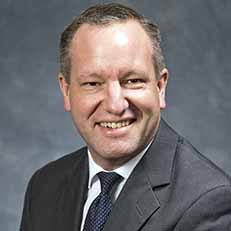 I am a Professor in the O’Neill School of Public and Environmental Affairs at Indiana University, where I’ve been since 2010, and am currently serving as the Executive Associate Dean. I’m a public finance scholar, and my research focuses on how the income tax impacts income and earnings, health insurance, charitable behavior, and savings. I’ve also examined the impact of tax audits on subsequent taxpaying among individuals and corporations.
I am a Professor in the O’Neill School of Public and Environmental Affairs at Indiana University, where I’ve been since 2010, and am currently serving as the Executive Associate Dean. I’m a public finance scholar, and my research focuses on how the income tax impacts income and earnings, health insurance, charitable behavior, and savings. I’ve also examined the impact of tax audits on subsequent taxpaying among individuals and corporations.
I’ve been an APPAM Member for well over a decade, am a regular attendee at the Annual Conference, and began serving as O’Neill’s Institutional Representative this year. I previously served as a co-editor for the Journal of Policy Analysis and Management. I’m excited by the opportunity to represent institutional members on the APPAM Policy Council, and to explore how institutional members and APPAM can work together to improve our programs and better serve the policymaking community.
TJ McCarthy, University of Southern California
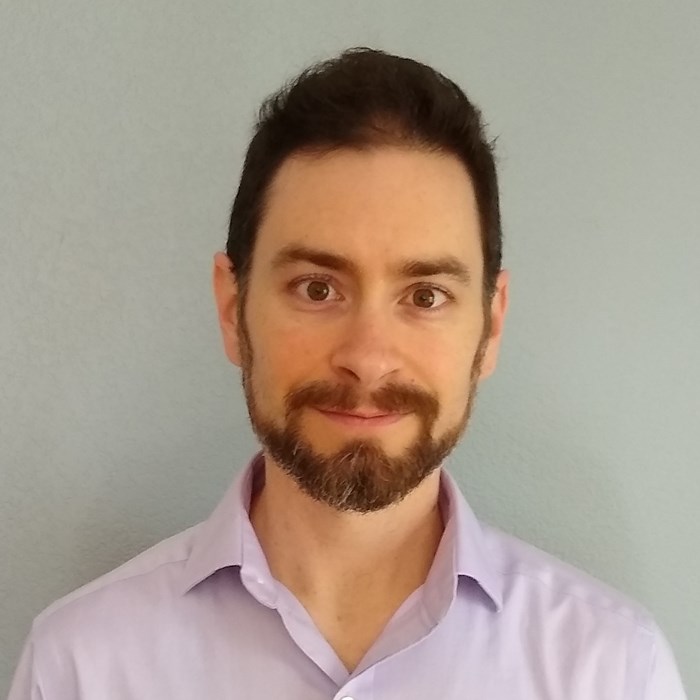 I am an Associate Professor (Teaching) at the USC Sol Price School of Public Policy. I teach courses in applied econometrics, cost-benefit analysis, public finance, and microeconomics, and my research activities focus on health, education, and veterans policy.
I am an Associate Professor (Teaching) at the USC Sol Price School of Public Policy. I teach courses in applied econometrics, cost-benefit analysis, public finance, and microeconomics, and my research activities focus on health, education, and veterans policy.
I have substantial experience leading academic programs, having served as the director of Price’s MPP, MS in Public Policy Data Science, and BS in Public Policy programs for three to five years each. I have also served in university-level roles including Faculty Fellow in the USC Center for Excellence in Teaching, Associate Director of USC’s Center for Knowledge-Powered Interdisciplinary Data Science, and member of USC’s Academic Senate. Since the onset of the pandemic, I have served on a committee charged with reducing USC’s pandemic-induced budget deficit, minimizing the pandemic’s financial impact on faculty and staff, advising on management of USC’s endowment, and developing strategic initiatives that have generated cost savings in excess of $100 million dollars to date.
Serving on the APPAM Policy Council would provide an exciting opportunity to make meaningful contributions to the profession beyond my own university. My experience in leadership roles with responsibility for academic programs, departmental and university finances, and teaching excellence initiatives provides a strong foundation for productive service on the Policy Council. I am especially interested in supporting initiatives relating to development of undergraduate education and, more generally, working with both academic institutions and employers to ensure that training provided at the undergraduate, master’s, and doctoral levels is aligned with the current and future needs of the profession.
Back to top of page.